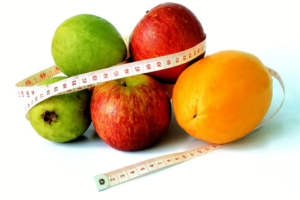Nutrition Myths Debunked: What’s Really Healthy?
Nutrition is a field rife with conflicting information, trendy diets, and a plethora of myths that can confuse even the most health-conscious individuals. This article aims to debunk common nutrition myths and shed light on what is genuinely healthy.
1. Myth: Carbohydrates are Bad for You
Truth: Not all carbohydrates are created equal. While refined carbohydrates like white bread, sugary snacks, and sodas can lead to weight gain and other health issues, whole grains, fruits, and vegetables provide essential nutrients and fiber. Whole foods that are high in carbohydrates offer energy and support crucial bodily functions. A balanced diet should include healthy sources of carbohydrates to provide energy for daily activities and exercise.
2. Myth: Fat Makes You Fat
Truth: Dietary fat is not the enemy. In fact, healthy fats found in sources like avocados, nuts, seeds, and olive oil are vital for many bodily functions, including hormone production and nutrient absorption. The key is to focus on the type of fat consumed. Trans fats and excessive saturated fats can lead to health problems, while unsaturated fats are beneficial. Moderation is crucial; they should be included as part of a balanced diet.
3. Myth: High-Protein Diets Are the Best for Weight Loss
Truth: While high-protein diets can support weight loss by promoting satiety, they are not the only solution. Sustainable weight loss comes from a balanced diet that includes proteins, carbs, fats, and plenty of vegetablesfruits. Overemphasizing protein can also lead to nutrient deficiencies if it results in the exclusion of other food groups.
4. Myth: You Need to Detox Your Body
Truth: The human body is equipped with its own detoxifying systems, primarily the liver and kidneys. The idea that you need special detox diets, cleanses, or products to rid your body of toxins is largely unfounded. A healthy diet rich in fruits, vegetables, whole grains, and adequate hydration typically provides all the support your body needs for detoxification.
5. Myth: All Calories Are Created Equal
Truth: While it’s true that weight management boils down to calories in versus calories out, the source of those calories matters significantly. 100 calories from candy does not have the same nutritional value as 100 calories from almonds. Quality matters; whole foods provide essential nutrients that processed foods often lack, which can impact health and well-being.
6. Myth: All Processed Foods Are Unhealthy
Truth: Not all processed foods are bad. While ultra-processed foods filled with additives, sugar, and unhealthy fats can be detrimental to health, there are also minimally processed foods that retain essential nutrients. Foods like canned vegetables, frozen fruit, and whole-grain bread can be convenient options that contribute positively to a balanced diet.
7. Myth: Eating Late at Night Causes Weight Gain
Truth: Weight gain is primarily about total daily caloric intake rather than specific eating times. Some studies suggest that late-night eating may lead to unhealthy choices, but the timing of meals is not as critical as the overall diet quality. What’s important is to focus on balanced meals and snacks throughout the day.
8. Myth: Gluten is Unhealthy for Everyone
Truth: Gluten is only harmful for those with celiac disease or non-celiac gluten sensitivity. For the majority of people, gluten is a protein found in wheat, barley, and rye, and they can safely consume gluten-containing foods if they are part of a balanced diet. Eliminating gluten without medical necessity can lead to a lack of essential nutrients.
9. Myth: Superfoods Can Fix Your Diet
Truth: The term “superfood” can be misleading. No single food can provide all the necessary nutrients your body needs. While foods like kale, blueberries, and quinoa are nutritious, they should be part of an overall balanced diet rich in a variety of foods. It’s best to aim for a colorful plate filled with different fruits and vegetables rather than relying on a few “superfoods.”
10. Myth: You Have to Cut Out Sugar Completely
Truth: Sugar, especially added sugars, should be limited, but eliminating it entirely can be unrealistic and unnecessary for most people. The focus should be on moderation and choosing healthier options. Natural sugars found in fruits come with fiber, vitamins, and minerals and are a better choice than added sugars found in processed foods.
11. Myth: You Can Spot Reduce Fat
Truth: Spot reduction is a common myth, especially among those looking to tone specific body areas. Fat loss occurs throughout the body as a result of a calorie deficit rather than localized fat loss. Combining regular exercise with a balanced diet is the most effective way to reduce overall body fat.
12. Myth: Organic Foods are Always Healthier
Truth: While organic farming practices can reduce exposure to pesticides and artificial additives, organic does not automatically mean healthier. Nutritional value can vary based on factors like soil quality and ripeness. Consumers should focus more on eating a variety of whole foods, whether organic or conventional.
13. Myth: A Vegetarian Diet is Always Healthier
Truth: Vegetarian diets can be healthy but aren’t automatically better than omnivorous diets. It’s possible to eat unhealthy foods on a vegetarian diet, such as processed snacks and sugary beverages. Balanced nutrition relies on making thoughtful food choices, regardless of dietary preferences.
14. Myth: Energy Drinks are a Healthy Way to Boost Performance
Truth: While energy drinks can provide a quick energy boost due to caffeine and sugar, they often come with downsides such as dehydration and increased heart rate. For sustained energy, consider natural sources like fruits, nuts, and complex carbohydrates.
15. Myth: You Should Avoid Dairy for Better Health
Truth: Dairy is a good source of calcium, vitamin D, and protein, beneficial for bone health. Many people can safely consume dairy and benefit from its nutrients. If someone is lactose intolerant or chooses not to consume dairy, there are plenty of alternatives like almond milk or lactose-free options that can provide similar nutrients.
16. Myth: You Should Eat More Small Meals Throughout the Day
Truth: The frequency of meals depends on personal preference and lifestyle. Some studies suggest that meal frequency does not directly influence metabolism or weight management. What’s crucial is maintaining a balanced diet and not exceeding daily caloric needs.
17. Myth: Protein Supplements are Necessary for Muscle Gain
Truth: While protein supplements can be convenient for some, whole food sources of protein can provide all the essential nutrients required for muscle growth and recovery. Foods like beans, lentils, chicken, fish, and dairy can be just as effective without the need for supplements.
18. Myth: Brown Bread is Always Healthier Than White Bread
Truth: Not all brown bread is made equally. Some brown breads contain added coloring and may be just as processed as white bread. Always check labels for whole grain content and opt for breads that list whole grain as the first ingredient.
19. Myth: If it’s Low-Fat, It’s Healthy
Truth: Low-fat products often have added sugars and artificial flavorings to enhance taste, making them comparable in caloric content to their full-fat counterparts. It’s essential to choose whole, minimally processed foods and consider the overall nutrient profile rather than the fat content alone.
20. Myth: All Natural Foods are Healthy
Truth: The term “natural” can be vague and is not always regulated. Many natural foods can still be high in sugar, sodium, or unhealthy fats. Always check the nutritional labels and focus on whole, minimally processed foods.
Conclusion
Understanding nutrition can seem daunting, especially with the sheer volume of myths that exist. It is essential to critically evaluate information and focus on evidence-based practices. The key to a healthy diet lies in moderation, variety, and balance rather than subscribing to strict dietary rules or fad diets.
References
- Willett, W. C., &Stampfer, M. J. (2017). Rebuilding the Food Pyramid. American Journal of Public Health, 110(8), 1094-1095.
- Hu, F. B., & Malik, V. S. (2010). Sugar-sweetened beverages and risk of metabolic syndrome and type 2 diabetes: a meta-analysis. Diabetes Care, 33(11), 2477-2483.
- Mozaffarian, D., & Ludwig, D. S. (2015). Dietary guidelines in the21st century—a time for choice. NEJM, 372, 245-255.
- Hartley, T. A., & Kaugh, T. D. (2019). Nutritional myths and reality: a review of current dietary recommendations. Nutritional Research Reviews, 32(2), 300-305.
These references provide insights into the research and developments in nutritional science, supporting the debunking of common myths discussed in this article. Stay informed, make balanced choices, and remember that what is “healthy” is often about context and overall lifestyle rather than isolated nutrients or food groups.


























Add Comment